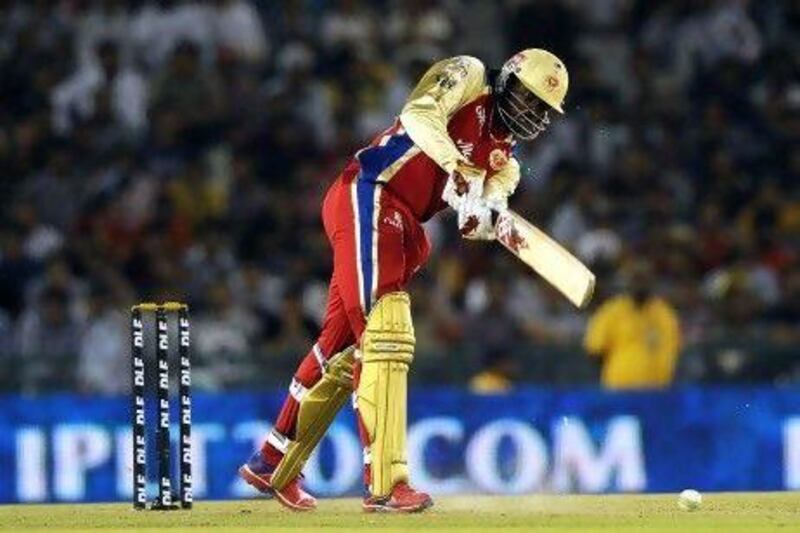Australia's tour of the Caribbean has overlapped with the first few weeks of the Indian Premier League (IPL), and there has been plenty said about the impact of the competition on international cricket.
All of Australia's leading players have been available for selection for the Test series. Those with IPL contracts, such as David Warner, Michael Hussey and Michael Clarke, will join their franchises only at the end of April once the final Test in Dominica is over.
Things are very different with West Indies. Chris Gayle continues to play and win games for Royal Challengers Bangalore, but the battle of wills with the West Indies Cricket Board has meant that he has not played a Test in nearly 18 months. Though some sort of solution has now been found, his IPL commitments mean that he will not be available for the five-day games in England next month.
Dwayne Bravo also last played a Test in December 2010, while Kieron Pollard, who enjoyed a stellar one-day series against the Australians, has yet to be tried in whites. Neither has Sunil Narine, who troubled Australia in the limited-overs arena and is now doing a fine job for Kolkata Knight Riders.
It is all too easy to brand these players mercenaries. That tendency seems especially common in England and Australia, where top players invariably choose Test cricket ahead of IPL contracts.
Kevin Pietersen, whose fantastic century against Deccan Chargers took Delhi Daredevils top of the table last week, will not be around much longer, as England prepare to open their home summer with three Tests against the West Indies.
But to compare Pietersen or Clarke with Gayle is patently unfair. The contracts that Australia and England players get from their boards are lucrative enough for them to not be unduly bothered about missing a few weeks of IPL action.
The same cannot be said of the West Indies, or Sri Lanka, where players were not paid for nearly a year after the World Cup.
The big retainers have not stopped England and Australia players making a beeline for the IPL either. Clarke will be playing for the first time when he represents Pune Warriors this season. In previous years, he dressed up his non-participation as a sign of commitment to the national cause. The cynics would say that the franchises did not meet his asking price.
The same is true of England players. It is not that Graeme Swann or James Anderson do not want to play IPL. They and their advisers have priced themselves out of it. The teams learnt after the Andrew Flintoff debacle in 2009 – Chennai Super Kings paid US$1.55 million (Dh5.69m) for a player on his last legs – that English players just were not worth that much of an investment.
With England certain to play home Tests at the end of May, their players would not be available for the final stages of the tournament. Pietersen spoke disparagingly of "second-rate" Australians getting contracts. But such players, and those from South Africa, are invariably available for the entire season.
For many players, the IPL also offers the biggest stage that they can perform on. Clarke has a World Cup winners' medal. Gayle and Bravo are unlikely to ever reach a final. Their situations are analogous to those of footballers from lesser nations. For Ryan Giggs, playing for Manchester United offered a platform that representing Wales never could.
A $700,000 contract can set up someone like Narine for life. Given the disarray at board level in the West Indies, no one should blame him for making that choice.
In the same shoes, cricketers from countries taking the moral high ground would behave no differently.
Follow us
[ @SprtNationalUAE ]





